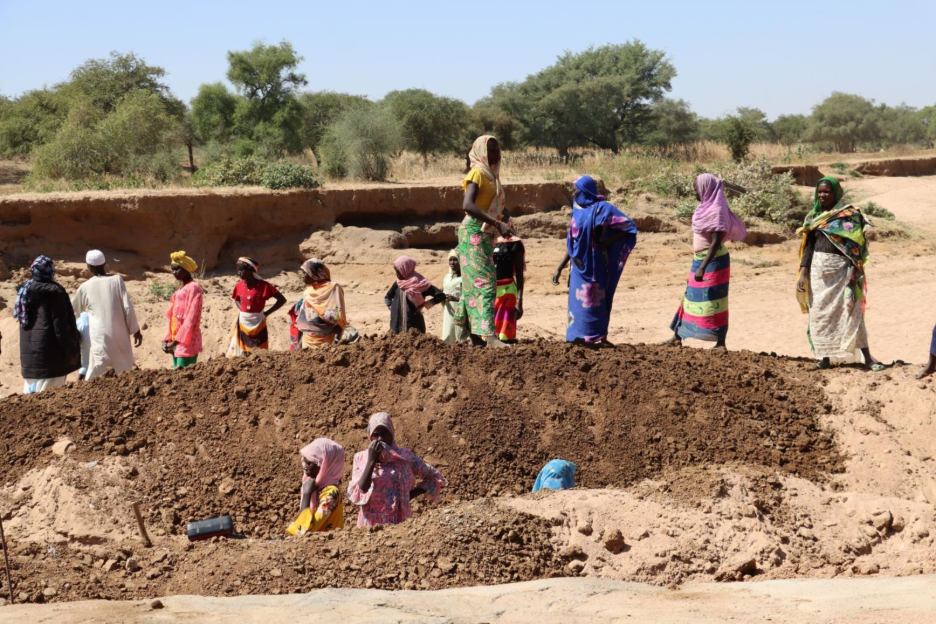Restoring Resilience in Lao PDR: Addressing Vulnerabilities in Savannakhet and Champasak
- Nov 28, 2024
- 2 min read
In the wake of the COVID-19 pandemic, Savannakhet and Champasak provinces in Lao PDR faced unparalleled challenges. High migration flows, limited WASH (Water, Sanitation, and Hygiene) facilities, and the socioeconomic fallout of the pandemic amplified vulnerabilities, particularly for migrant returnees, displaced populations, and youth. In response, the “Protection and Services for Vulnerable Settlements, Migrants, and Youth” joint programme was launched, targeting these underserved populations with a focus on health, sanitation, and sustainable livelihoods.

UN-Habitat intervention to tackle the problem
The programme adopted a comprehensive approach to tackle the health and socio-economic challenges exacerbated by the pandemic. WASH infrastructure was a key focus, with the construction of water networks, tanks, hand-washing stations, and bathrooms in quarantine centers. This ensured access to clean water and hygiene for those in isolation. Additionally, efforts were made to enhance the capacity of staff at quarantine centers, hospitals, and isolation facilities, equipping them with the skills and resources necessary for effective day-to-day management.

Gender-sensitive elements were incorporated into the construction of WASH facilities to ensure inclusivity. To further promote hygiene and health, personal protective equipment (PPE) and hygiene kits were distributed, along with other critical health support equipment. Mental health was another priority, with 70 counselors trained to offer psychosocial support and hotline services established to address psychological distress, which reached tens of thousands of individuals.
Young people, often overlooked in crises, were a central focus. Over 132,000 adolescents and youth benefited from tailored services designed to meet their unique needs. Migrants, another group heavily impacted by the pandemic, received emergency support in the form of essential packs, while widespread information campaigns reached over 25,000 people with critical health and safety information. Enhanced radio stations amplified these efforts, ensuring messages reached 622,070 individuals across the region.
The programme's impact was far-reaching, directly benefiting 172,000 people, of whom 101,160 were women. This included vulnerable populations such as migrants, youth, and survivors of gender-based violence. Improved WASH facilities alone served 11,940 individuals during quarantine and an additional 29,667 users post-quarantine. Mental health services, supported by the hotline, reached 28,860 individuals. Migrants were supported with emergency aid, and youth programs reached a staggering 132,737 adolescents and young people. Indirectly, approximately 600,000 people benefited from strengthened systems and services.

This ambitious programme was made possible through the collaboration of UN-Habitat, the International Organization for Migration (IOM), and the United Nations Population Fund (UNFPA), with funding from the Swiss Agency for Development and Cooperation (SDC). Local partners, including the Ministry of Public Works and Transport, Ministry of Labor and Social Welfare, Nam Papa State Enterprise, the Lao Women Union (LWU), the Lao Youth Union (LYU), and various Civil Society Organizations (CSOs), played a vital role in implementation.
Voices from the community highlight the programme’s transformative impact. Practical training in areas such as agriculture, motorcycle repair, sewing, cooking, and beauty services equipped participants with the skills needed to rebuild their lives. Paired with entrepreneurship training and guidance on business planning, these initiatives empowered beneficiaries to establish sustainable livelihoods. The holistic approach not only addressed immediate needs but also laid a foundation for long-term resilience, leaving the communities of Savannakhet and Champasak better equipped to face future challenges.





Comments